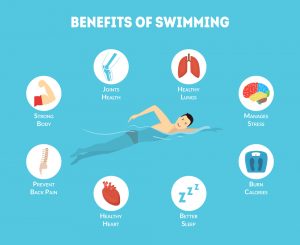Controlling anger is key to a healthier life style. Allowing the actions of others to hurt our own mental and physical health can cause stress and disharmony in the body. Anger management can help oneself find the ability to better acknowledge anger triggers as well as to better cope with the emotional eruption. Yoga is one way to learn better ways to cope with anger and control emotion. Yoga is easy to learn and a great way to let off frustration and find inner peace. There are numerous poses in yoga that can aid an individual in dealing with angry emotions.
The article, “Yoga for anger management: 5 poses to break free” by Anujj Trehaan discusses the various poses one can utilize in yoga to combat anger. She lists numerous poses from Balasana to Sukhusana. She also encourages Savasana, Matsyasana, and Uttanasana as important poses. The article explains the purpose of each pose and how the poses help one better cope with anger. She states,

“It is natural to feel anger but not when it starts getting the better of you.Anger is a powerful emotion and probably the only one that hurts us more than it may hurt someone else.If you find yourself in an unbreakable loop of rage and resentment, we have got your back.Go ahead and try these five yoga poses for anger management.”
“Yoga for anger management: 5 poses to break free”. Anujj Trehaan. October 23rd, 2022. NewsBytes.
To read the entire article, please click here
Commentary
When it comes to yoga and anger, there are a few things to consider. For one, anger is often seen as an emotion that needs to be released in order to achieve inner peace. However, yoga teaches us that all emotions should be experienced and then let go of. This can be difficult to do with something as powerful as anger. But if we can learn to experience anger without letting it take over, we can find a balance between the two extremes.
Yoga and meditation can play key roles in reducing stress and anger in life. They can prevent the sympathetic nervous system from overwhelming the body and keeping the body in a constant state of fight or flight. It can also help the body find relaxation and reverse it through the para sympathetic nervous system. This deactivates many of the hormones and the prepare the body for fight or flight and all the emotions that are tied to this response.
Types of Poses for Anger Management
Balasana, also known as child’s pose, is a resting pose in yoga. The word “balasana” comes from the Sanskrit words “bala,” meaning “child,” and “asana,” meaning “pose.” This pose is often used as a resting pose between more active poses, or as a way to release tension and anger. To perform child’s pose, start in a kneeling position with your buttocks resting on your heels.
The Hindi word “suhkusana” can be translated to English as “anger.” This word is often used to describe the feeling of anger that one experiences when they are upset or frustrated. When someone is suhkusana, they may feel like they are about to explode with anger. This feeling can be caused by many different things, such as stress, anxiety, or even just everyday life. It is of no wonder then why this pose is utilized in anger management.
Savasana, also known as corpse pose, is a posture that is often used in yoga classes. The purpose of savasana is to allow the body and mind to relax and release any tension that has been built up during the practice. Anger is an emotion that is characterized by feelings of frustration, hostility, and/or aggression. It is often triggered by a perceived threat or injustice.
Matsyasana is a yoga asana that helps to release anger. When we are angry, we tend to hold our breath or take shallow breaths. This asana helps to release the tension in the body and allows us to take deep, calming breaths. It also helps to lengthen the spine, which can help to improve our posture and alleviate back pain.
Uttanasana, or “intense stretching pose,” is a yoga asana that is said to be beneficial for anger management. The practice of Uttanasana is said to help release tension and stress from the body, which can often contribute to feelings of anger. In addition, the deep breathing associated with Uttanasana is said to help relax the mind and body, providing a sense of calmness and peace.
Conclusion
In conclusion, yoga is a great way to help manage anger. It can be done in a group setting or at home, and only requires a yoga mat and some comfortable clothing. Yoga can help to focus the mind and body, and release tension that may be causing anger. If you are feeling angry, there are certain yoga poses that can help you to manage that anger. These poses include the Camel Pose, the Child’s Pose, and the Corpse Pose. By practicing these poses, you can help to calm yourself down and find some inner peace. If you are looking for a way to manage your anger, give yoga a try.
Please also review AIHCP’s program in Anger Management Consulting and see if it meets your academic and professional goals. The program is online and independent study and open to qualified professionals looking to earn a certification in Anger Management.
AIHCP also offers a program in Meditation Instructor that can help individuals utilize meditation in their daily lives and help teach others. Obviously Yoga is an important element in meditation and is also discussed. In addition, Yoga also is beneficial in Stress Management and AIHCP also offers a certification for those interested in teaching Stress Management.
All three of these programs are very much integrated and connected in practice and better outcomes with anger and stress.
Additional Resources
“Development and validation of Yoga Module for Anger Management in adolescents”. Alaka ManiTL, etc. al. Complementary Therapies in Medicine Volume 61, September 2021, 102772. Access here
“Yoga for Anger Management: Practice These Yoga Exercises to Control Anger”. Ashish. December 21st, 2021. Fitsri. Access here
“Yoga for Anger Management: Release Negative Energy”. Taylah Soutter. September 20th, 2022. Men’s Yoga Journal. Access here
“HOW YOGA BENEFITS ANGER MANAGEMENT”. Nicole Anderson. The Strive. Access here















